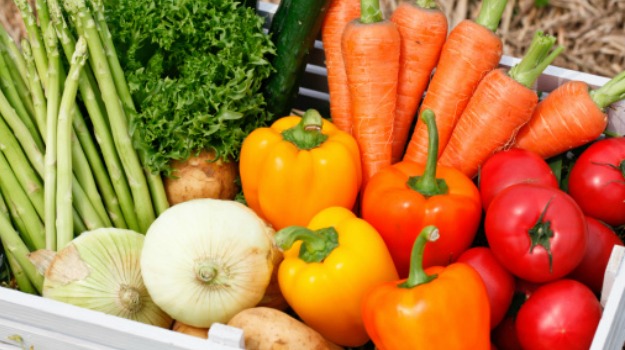1. Go organic: Organic foods are those that are grown naturally, free from the use of any chemical or synthetic fertilizers and pesticides. Such practises promote a healthy environment for growing crops and raising livestock. Organic farming encourages soil and water conservation and also helps in reducing pollution. You might find them a bit expensive than your regular foods but their positive environmental impact is worth the price!
2. Use leftovers: Food wastage is one of the most serious problems that every society is dealing with. While in certain countries there is starvation and malnutrition due to food scarcity, some lavishly trash billions of food waste. Food waste leads to wasteful use of chemicals and is responsible for the addition of greenhouse gases to the atmosphere. Using leftovers for your meals the next day is a simple solution to this problem. Try these creative ways of putting leftovers to use.
3. Grow for yourself: Creating your very own kitchen garden by growing foods at home has more advantages than just balancing your budget. It can not only help reduce carbon footprint but also reduce the use of fossil fuels consumed in transporting those foods. You can be rest assured that the vegetables you grow will be in harmony with the nature. This can also be a great way to use up food waste as compost for growing fruits or vegetables.
4. Avoid packaged foods: A lot of plastic and other packaging material is used in packing foods and drinks every year. Shift to non-packed food and drinks by drinking tap water or carrying water, consuming freshly extracted juices and other foods that are freshly made and free from chemicals and preservatives. This will reduce the emissions from the factories where these products are created, processed and packed.
5. Eat seasonal: Eating seasonal is definitely good for your health. Nothing like the freshest produce of the season, they have the highest nutritional value than other foods. Besides this, avoiding foods that are not in the season can help as they are coated with unwanted chemicals or waxes to make them look fresh and attractive. Foods that are not in season are produced artificially for a longer shelf life and lack the fresh flavour.
6. Eat locally: Using locally produced ingredients helps to reduce the energy consumed by foods that have to travel a distance to reach you. Consuming foods that are locally grown can save fuel, reduce carbon emissions and support local agriculture.
7. Eating raw: Going on a raw food diet once in a while can help saw energy that is otherwise used by power appliances like the stove, oven or microwave. Going vegan for a few days would also help. A vegan diet is one where all animal and dairy products like meat, cheese, milk etc are avoided. This will help reduce the resources used to raise such cattle or livestock.
8. Eating less meat: Industrially manufactured meat has the maximum negative impact on the environment than any other foods. Firstly, raising livestock leads to widespread deforestation to create space. A previous study revealed that the chemical fertilizers used to grow feeding crops for the livestock emit a large amount of greenhouse gases which is causing a climate change. If you find it hard to give up on meat completely, you could at least reduce your weekly intake to start with.



 Contact Us
Contact Us






 Hospitals
Hospitals
 Doctors
Doctors
 Diagnostic
Diagnostic
 Pharmacy
Pharmacy
 Health Tips
Health Tips
 Blog
Blog

















Comments